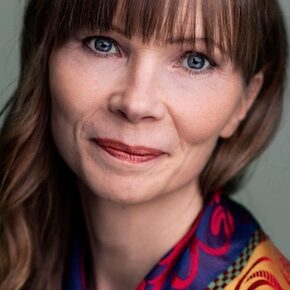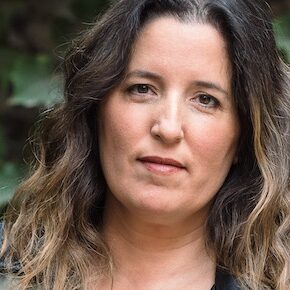
History train
‘Mater’ comes from the Japanese abbreviation for ‘mountain’. During Japanese colonialism, fifty Mater 1 locomotives, modelled after their Mountain-type counterparts in the United States, were built in Gyeongseong (Seoul) and at the Kisha Seizo factory in Japan. The thirty-three-carriage Mater 2, an improved version manufactured by Kawasaki Heavy Industries, was introduced and operated mainly in...

A shower of stardust
It was long after nightfall, and a soft breeze played over Guillaume’s face. He had positioned his telescope to the portside and aft, to observe the constellations of Centaurus, Circinus, Volans and the Southern Cross. With a yellow glass disc placed over the end of the telescope, the image was more sharply focused. He was...

My invisible friend
At one point they tried to calculate when time began, when exactly the earth had been created. In the mid–seventeenth century, the Irish bishop Ussher calculated not only the exact year, but also a starting date: October 22, 4,004 years before Christ. It was a Saturday (of course). Some even say Ussher gave a precise...

My grandmother
With some frequency, we hear readers ask authors how much of their novels they’ve pulled from their own lives, assuming that some if not most of the content must be autobiographical. One of the fascinating things about this memoir by Xesús Fraga is that readers ask the same thing, because it seems simply impossible that...

About my Aunt Nené
She spent her life clinging to the skirts of the mother who was also my mother’s mother which is to say mine and Betina’s grandmother. My grandmother’s skirts were like a priest’s cassock and her shoes were sturdy like men’s shoes while her hair was tied up in a black bun because her mother was...

Translators Aloud: Charlotte Coombe and Tina Kover
In May 2020, in the early months of the first Covid-19 lockdown, Tina Kover posted on Twitter that she was considering uploading a video of herself reading from one of her translations but wasn’t sure if anyone would be interested in watching such a thing. Amid a flurry of replies, fellow translator Charlie Coombe suggested...

Ann-Helén Laestadius: Lost lands and lost lives
Ann-Helén Laestadius’ Stolen is a forceful story of a young Sámi woman battling to preserve the lifestyle and traditions of reindeer herders in Sweden amid a wave of torture and massacre of the animals on whose livelihood they depend. At the age of nine, Elsa witnesses the aftermath of the brutal killing of her favourite...

Into the volcano
In Iceland, volcanoes used to be a menace; terrible, sleeping monsters that erupted once in a while, spewing ash and lava over the country, killing people and animals, destroying homes and causing famines. Today, thanks to science, we know much more about them, we understand why they erupt, and our brilliant geoscientists can often warn...

Back to that place
José went in a car with two plainclothes policemen. I went in another with the detective and a muscular man covered in tattoos. The vehicle I was in drove slowly, up the same road that a few days earlier I had travelled up on foot, clothed and intact, and on the way down, torn and...

Wildness and wonder
Franco-Mauritian author Caroline Laurent’s latest novel An Impossible Return is an epic love story set against the shocking injustice of the Mauritian government’s deal with Britain for independence – which resulted in the wholesale evacuation of the Chagos Islands to enable the US to set up a strategic military base on Diego Garcia. When independent, passionate Marie...



